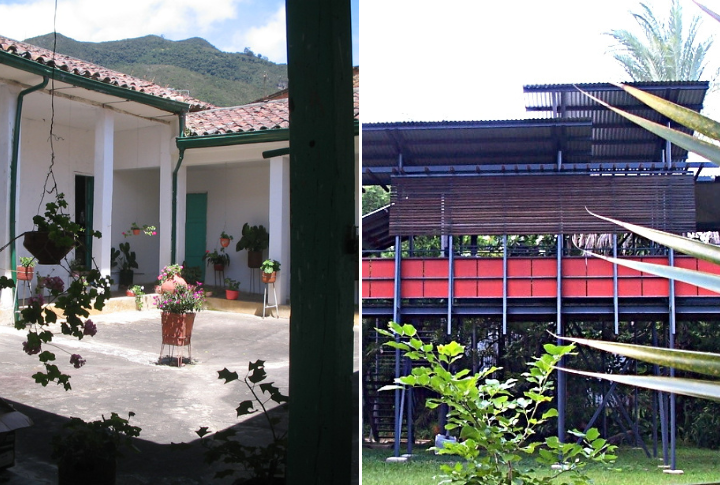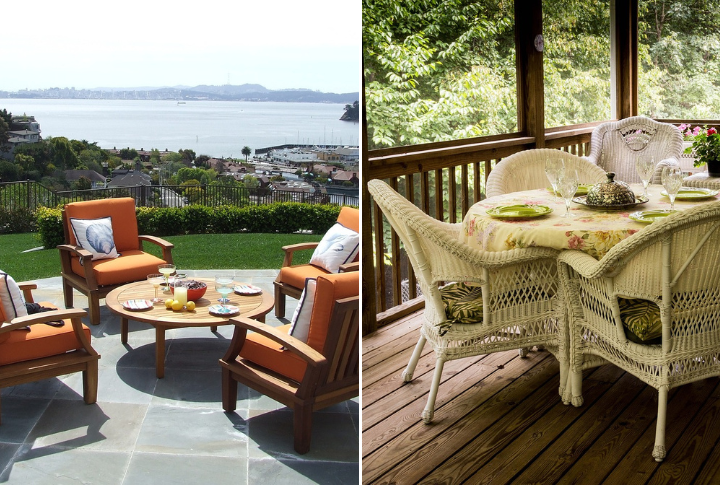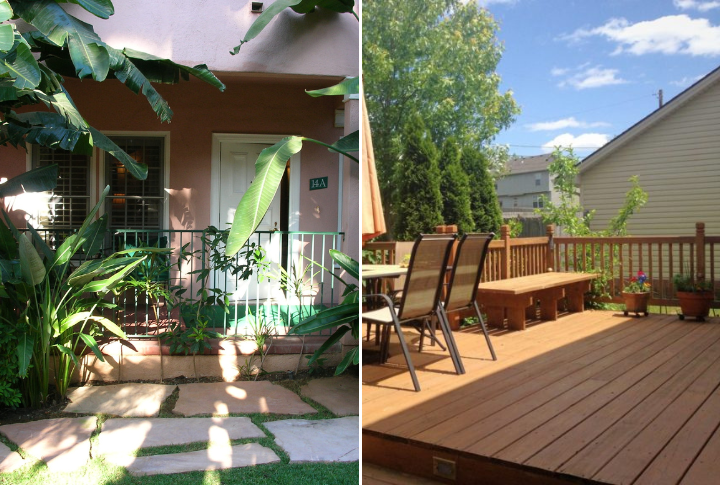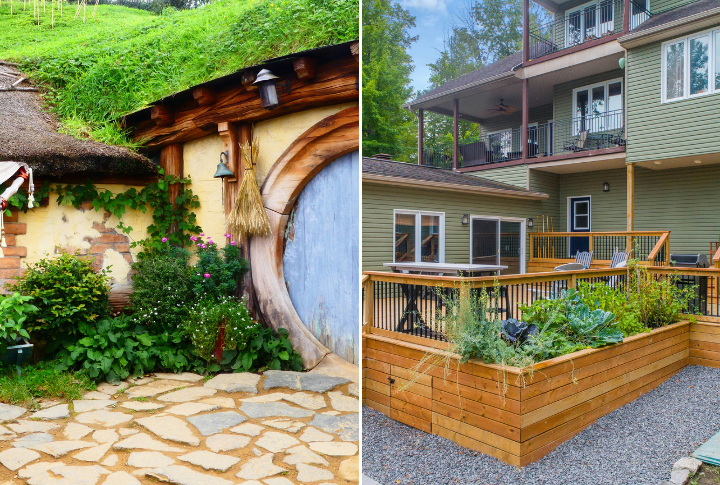
When enhancing your outdoor space, the choice between building a deck or a patio can be difficult to make. Both options provide wonderful ways to enjoy nature, entertain guests, and add value to your home, each with its own distinct benefits and challenges. Let’s find out which suits you best.
Cost Comparison

Often made from concrete, stone, or pavers, patios are generally more affordable than decks. Wood or composite can make decks a bit pricier to build. While decks may offer a larger return on investment, patios are a cost-effective option for homeowners looking to expand their outdoor living space without breaking the bank.
Maintenance Requirements

Maintaining a deck requires more effort compared to a patio. Decks made of wood need regular sealing, staining, and repairs to protect against weather damage. Patios, especially those built with durable materials like stone, require less maintenance, primarily involving cleaning and the occasional weed removal between the pavers.
Durability and Longevity

Patios, especially those made of stone or concrete, are built to last and can withstand the elements for decades. Decks, particularly wooden ones, are more susceptible to weather-related damage, including rotting and warping. However, composite decking offers improved durability with less maintenance, though at a higher upfront cost.
Elevation and Slope Considerations

A deck may be the best option if your backyard has a steep slope. Decks can be constructed above ground, making them ideal for uneven terrain. In contrast, patios are suitable for flat areas. Additionally, installing a patio on a slope requires additional work, such as retaining walls, which can increase costs.
Climate Adaptability

Climate significantly influences the deck vs. patio debate. Patios are often suited for areas with extreme weather as they’re less affected by rain and snow. Decks, especially wooden ones, require more care in harsher climates to prevent damage from moisture and sun exposure, though composite decks perform better in these conditions.
Aesthetic Flexibility

Patios provide numerous design options with materials like stone, concrete, and tile, and they are customizable to fit various aesthetics. Decks provide a different look, often complementing a home’s architecture, especially in multi-story designs. The choice depends on the visual impact you want for your outdoor space.
Resale Value

Your property’s market value will probably increase with either option, but decks often provide a higher return on investment. A well-maintained, attractive deck adds significant appeal, especially in homes with scenic views. However, a beautifully designed patio can equally boost curb appeal, particularly if it’s integrated well with landscaping.
Comfort and Temperature

Patios, built directly on the ground, tend to absorb heat, making them warmer underfoot, especially in sunny weather. However, decks, uplifted and often shaded, tend to stay cooler. If you plan on spending a lot of time outdoors in the heat, a deck might offer a more comfortable experience.
Installation Time and Complexity

Decks generally take longer to install, especially if they require custom designs, multi-levels, or railings. Meanwhile, depending on the materials used, Patios can often be installed more quickly. This makes patios a more appealing option for homeowners looking for a faster and less complex outdoor upgrade.
Environmental Impact

Patios made from natural materials like stone or eco-friendly pavers tend to have a lower environmental impact than traditional wooden decks, which contribute to deforestation. Although composite decking materials are a greener alternative to wood, patios still remain a strong choice for eco-conscious homeowners.
Privacy Considerations

A deck, being high up, can offer better views but may also expose you to your neighbors’ sightlines. Patios, being closer to the ground, naturally provide more privacy, especially if surrounded by fences or landscaping. Your choice may depend on how private you want your outdoor space to be.
Versatility of Use

Patios are more versatile for a range of uses, including outdoor kitchens, fire pits, and seating areas. They provide greater versatility in layout options, size, and design possibilities, especially for outdoor entertainment spaces. On the other hand, decks are great for creating raised seating spaces.
Safety Concerns

Families with children should consider safety when making a decision. Decks, particularly multi-level ones, require railings and other safety measures to prevent falls. Patios are usually the more child-friendly option and are better for elderly family members since they are at ground level and generally pose fewer safety risks compared to elevated decks.
Connection to Nature

Patios offer a more grounded, natural experience as they are integrated into the garden. They provide an earthy, seamless transition between your home and yard. Decks, though visually striking, feel separated from the ground, offering a different type of connection to nature, often with higher views.
Customization Potential

While both patios and decks can be customized, patios tend to offer more opportunities for creative designs. Patios can be uniquely tailored to your outdoor vision with ease. In contrast, decks are often limited by the structure’s materials and the need for safety features like railings.

